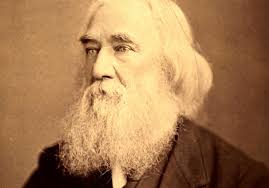It's Time To Liberate Anne Frank's Diary
Samuel Bryan • Nov 18 2015
It's time to liberate Anne Frank's diary, so it is available to all of humanity.
But extreme US copyright law may keep that from happening. The current battle over the diary illustrates one of the biggest problems with centralized systems – their potential for abuse.
You're probably familiar with The Diary of Anne Frank, also known as The Diary of a Young Girl. The book features the writings of a young teenage girl as she hid from the Nazis for two years in the occupied Netherlands.
Anne died in the Bergen-Belsen concentration camp in 1945 at the age of 15. Herein lies the roots of the copyright battle over her diary.
The Anne Frank Fonds now holds the copyright. The foundation was set up by Anne's father, Otto Frank, before his death in 1980. Under the law, the diary should become public domain on January 1, 2016 – 70 years after Anne's death. But Anne Frank Fonds now claims Otto was a co-author, even though he was previously considered the "editor." The foundation now insists Otto's co-authorship extends the copyright to 2050 – 70 years after his death.
Of course, Anne Frank Fonds stands to collect a significant amount of money in royalties over that time.
"It is wrong to assume that the copyrights to Anne Frank's Diaries would be due to expire in the near future, or that anyone would be free to use and publish them without permission," the organization said.
As the Los Angeles Times put it, this is "a disturbing perversion of copyright principles."
Michael Hiltzik goes on:
"Instead of providing a limited monopoly to creators to promote the flow of artistic works to the public, it's become a practically limitless source of income to creators' heirs – sometimes generations removed – and corporate rights holders."
The truth of the matter is it's not generally creators' heirs that reap the financial rewards. It's often large corporations that use the law as a billy club to keep things out of the public domain and maintain the flow of royalties.
An article on BoingBoing characterized Anne Frank Fonds' legal maneuvering as "fraud." By suddenly and inexplicably transforming Otto's role from a mere editor to a coauthor, the foundation insured itself a steady stream of revenue for years to come. As a result, the general public will likely be denied general access to this historically significant work.
As Rick Falkvinge argues, these archaic copyright laws simply don't work in the Internet age:
"The Internet is the single most important piece of infrastructure we have, and policymakers are letting an old printing monopoly decide how it can and cannot be used – which should be cause for revolts and uprisings. Instead, old media are collectively treating it with a yawn, while tech writers who understand the issue are calling a spade a spade."
The real question is why should the distribution of Anne Frank's diary be limited to one or two players in a monopoly system? If information were set free, you could access the diary in formats and with commentary limited only by our collective creativity.
If not for the archaic copyright monopoly, LBRY could add this significant historical work to its collection. That would make it accessible to people around the world, even in places where traditional book distribution is difficult, or where authoritarian governments might want to censor access to it.
Anne Frank's Diary wasn't written to make a buck. It is part of the heritage of humanity, and it should be available for everyone to experience.
